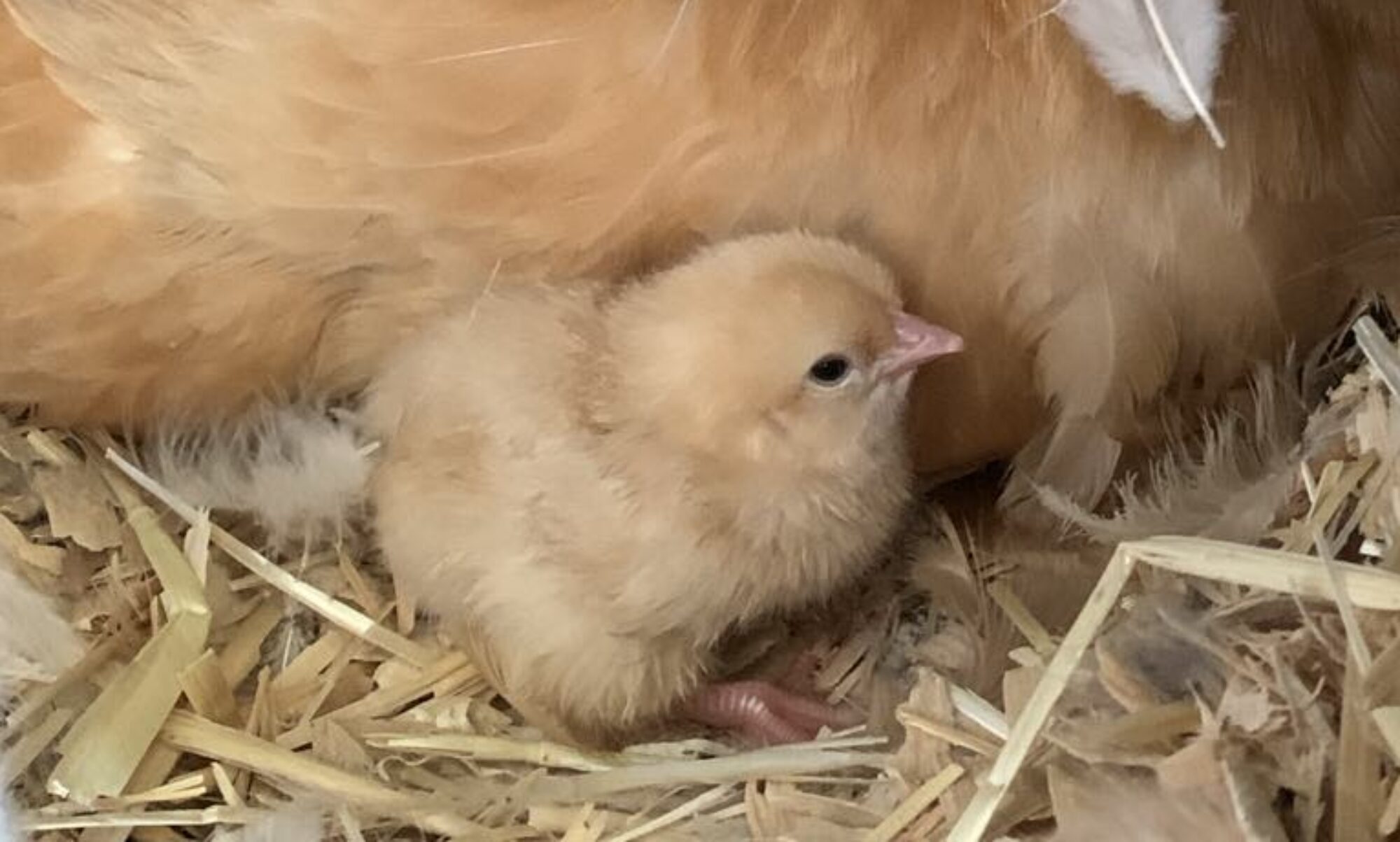Have you ever wondered why roosters crow? Is it just to annoy the neighbors? Are they really nature’s alarm clock? Have you watched a mama hen patiently cluck at her young as she points out bugs, seeds or grain? Have you noticed that low growl you get from a broody hen as you attempt to remove the egg she just laid? All those cackles, chortles, squawks, purrs, growls and crows have meaning. It’s our chicken’s way of communicating with the world around them.

It is thought that a mama hen sitting on her eggs will quietly “talk” to her young as they are beginning to hatch. She is introducing them to the sound of her voice so that they will recognize her call. In turn, chicks will cheep while still in the egg so that mama hen becomes familiar with her babes as well. Communication begins before chicks are even out of the egg! Watching a mama hen with her young is quite fascinating. She will softly cluck to her chicks as she shows them what is good to eat and what to stay away from. Whenever I put a dish of food in with mama and her babies, she will cluck excitedly, calling her young over to check out the dinner that has just been delivered. If another hen gets too close to the new babies, mama will cluck loudly, calling her babies to her and scooping them under her wings, while scolding the intruder, warning them they were getting a little too close. I think that it is amazing the way they look after their young and teach them. If your raise chicks without a mama hen, you need to pay attention to the sounds of your little ones. Quiet trills and coos signal contentment; incessant chirping indicates discomfort…too hot, too cold, no food, no water. Watching, learning, and understanding their chirps is important in raising healthy chicks.

Crowing is the way that roosters communicate with other chickens, and it isn’t reserved for just morning. Roosters will crow throughout their day. They are very protective of their hens and will crow to make them aware of potential danger. They even have different sounds to warn of danger coming from a ground predator like a raccoon versus danger coming from above, such as a hawk. They will crow to warn other roosters of their territorial boundaries, to establish dominance, or to celebrate a conquest! You will notice that they will vocalize when they find some tasty treat that they want to share with their girls, calling them over to have a taste. And of course, roosters crow in the early morning to signal the start of their day…and everyone else’s apparently. I for one, think they like the sound of their own crow.

You might notice your hens out in the pasture or chicken run, happily chattering back and forth to one another as they look for food, or sunbathe. It’s almost as if they are carrying on a conversation among themselves, talking about the best pan to eat out of, which herb they like the best, or which nesting box they plan to use that day. You can also tell when something is wrong with one of your birds. If a normally chatty bird is quiet one day, you might want to give them an second look. You can’t miss the loud cackling that announces the laying of an egg. Often many of the other hens will join in the joyful chorus and they will continue singing for several minutes. Laying an egg, or cackle berries as my neighbor calls them, is definitely something to let the world know about! Then if you try to take away that egg your proud hen is sitting on, she just might growl at you, warning that she is not quite ready to give it up. This growl might be followed by a quick peck if you persist. Because they are prey animals, not all chickens are comfortable being picked up. If you try to handle an unwilling bird you might be witness to a high-pitched hysterical squawk letting you know she’s not happy about the situation.

Different breeds make different sounds and some chickens are more talkative than others. I notice that my roosters are much more talkative than most of my hens, whether it be the free-range roosters or the penned up roosters. They cluck, and crow, and chatter while eating, courting, scratching around their yard, or checking out the coop to see what the girls are up to. I also notice a lot of conversation going on among the birds when they get special treats, like cabbage on a rope, or peanuts in a straw pile. They are part of a flock, social animals, and it’s like they want to share their great find with all their friends.

If you watch and listen, you’ll soon be able to tell when there is something wrong in the coop, when someone gets startled, and when they are waiting for food. They will greet you at feeding time and scold you when you’re late. You’ll understand when a hen is broody, and you’ll chuckle at their happy chatter when it’s treat time. Understanding your chicken’s “talk” makes interacting with them a little more enjoyable. Listen and they will tell you a story.

Sources:
https://www.mypetchicken.com/backyard-chickens/chicken-help/Do-chickens-have-a-language-H94.aspx
https://www.thehappychickencoop.com/chicken-noises-and-sounds/

